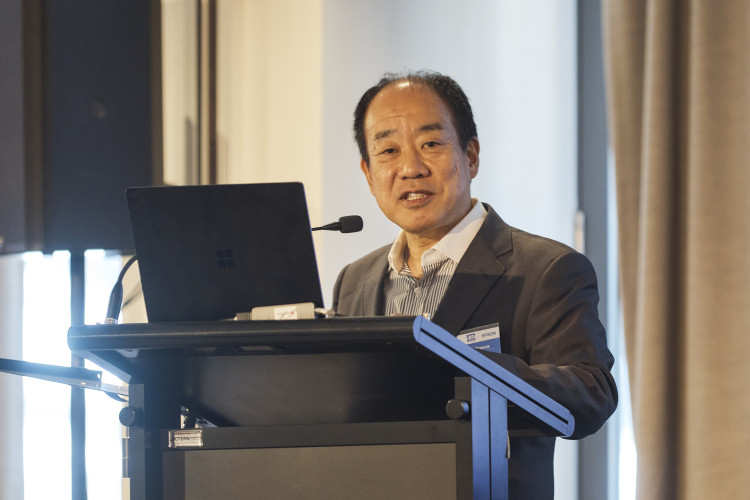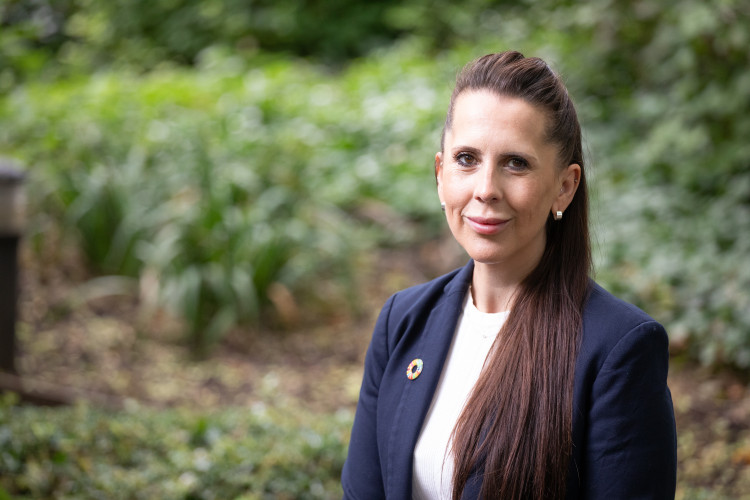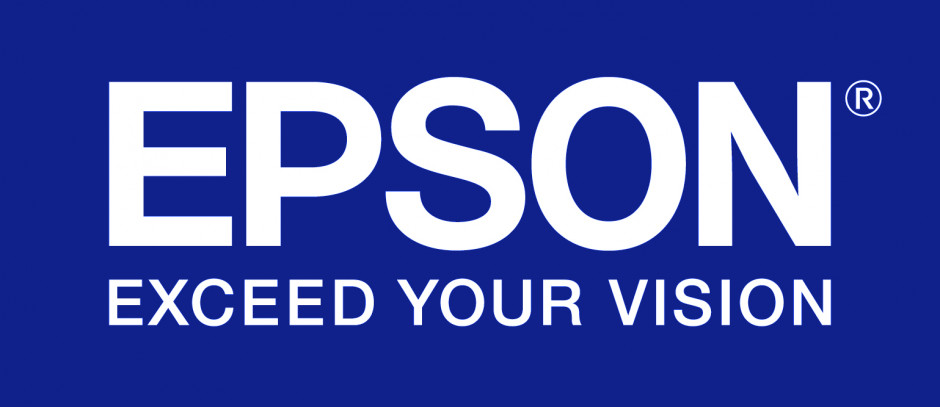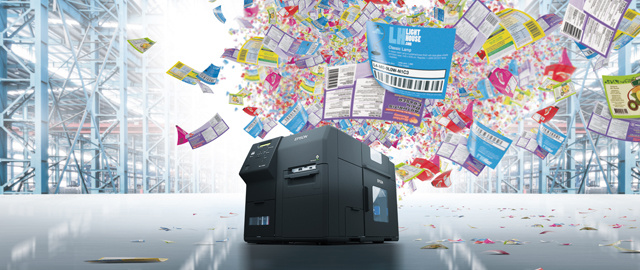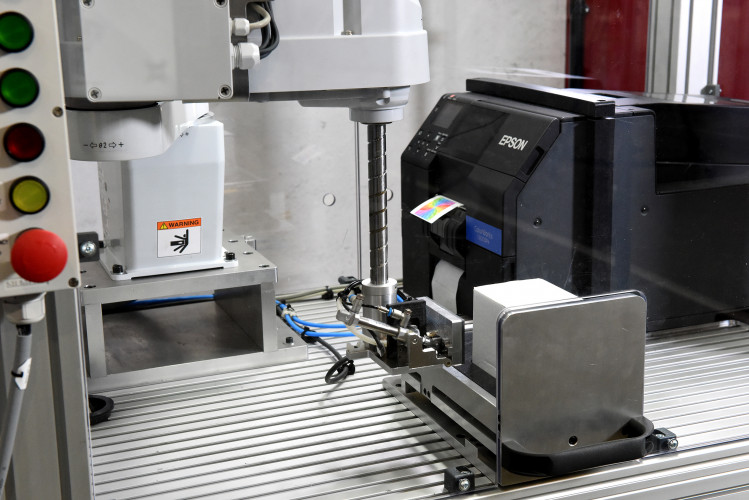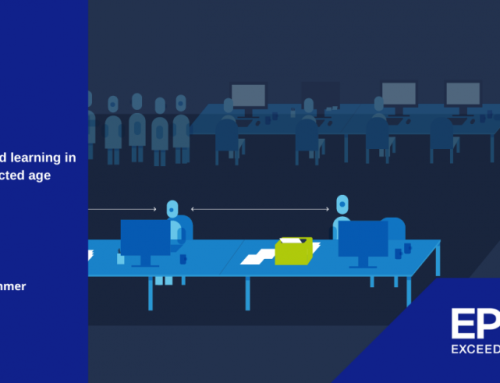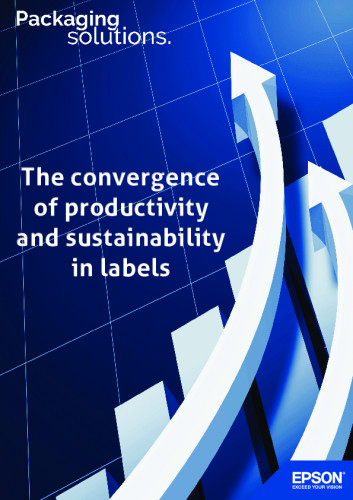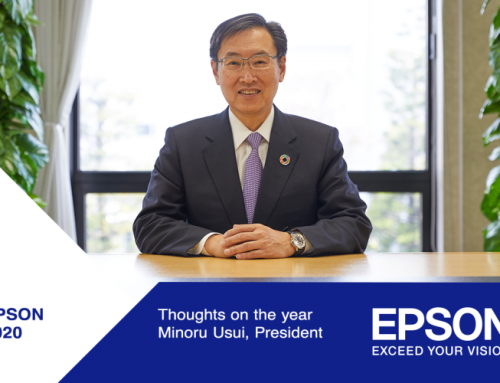Colourful and smart will be the new fashion for Digital Printing
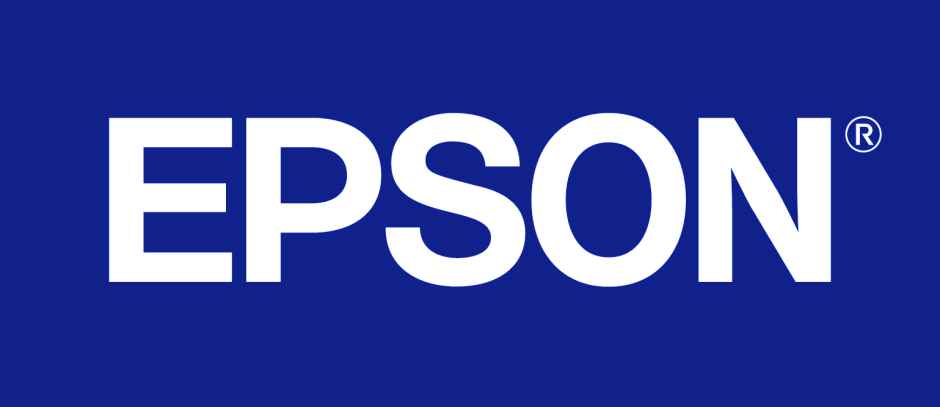
Smart labels have been around for a while, but mostly these are monochrome and involve separate print production and chip encoding processes. All this takes time, is less flexible, more expensive and a lot more complex – especially for short print runs where quick turnaround is required. This has changed with an announcement from Epson that it can now offer technology to allow users to produce colourful, high-quality smart labels in bespoke quick print runs. It is relevant to companies of all sizes operating in today’s fast-paced digital age.
Working closely with American label systems specialist FlexStr8, Epson and its resellers can now offer either RFIDor NFCencoding inline on the ColorWorks label printing technology – RFID with the ColorWorks C7500 or NFC with the ColorWorks C3500.
These new Epson-based solutions allow high resolution full-colour smart labels to be printed and encoded in one step. The Epson C7500 prints to a high quality (1200 x 600dpi) and with a full speed of 300m/second and the Flexsr8 snap-on encoder operates simultaneously. Apart from the eye-catching attraction of colour in promotional applications, it is also mandatory for some industrial applications; the Globally Harmonized System of Classification and Labelling of Chemicals (GHS), for instance, is required by international law to be colour coded.
RFID and NFC are wireless solutions that can identify a product, carry safety or other legislative data, track and control product storage or movement and even interact with customers or users by triggering content on smartphones, tablets or video devices. Many major manufacturing organisations and clothing retailers already use these solutions and are expected to extend their use because they are cost-effective and fit well with legislative requirements and efficiency strategies, including the Internet of Things and Industry 4.0.
RFID stands for Radio-Frequency Identification. It is a wireless system that combines a small programmable chip and a flat antenna or antennae that can be incorporated into a label. The information on the chip identifies a specific product or package so when it is scanned by an RFID reader it is immediately identified. It is popular because it has a range of up to 12m/30ft (depending on the radio frequency) to “read” the data, making it ideal for busy environments and for multiple packages.
Most labels and tags are “passive” so no battery or power source is needed and the radio energy from the external scanner is all that is needed to power up and read the RFID chip. The use of RFID is widespread, with increasingly common use in retail outlets and warehouses for security, stock control, picking and tracking. It has also been used for in-store promotions where, for instance, an RFID label could activate a video or tablet display with sales or product information.
Many industries require colour for a variety of reasons and sectors that are showing particular interest in the Epson solution include textiles and apparel, pharmaceutical, aerospace and warehouses.
NFC means Near Field Communication. It provides a short-range wireless connectivity standard that uses magnetic field induction to enable communication between devices when they are touched together or brought within a few centimetres of each other (maximum 10cm). It is similar to the technology used when you make contactless credit card payments. This short-range communication and encoding works for applications that need to have some measure of security, such as ID cards or smart tickets that need to be held by a particular person or applied to a specific object. For instance, they may be used in hospitals where NFC is labels or badges might be used to restrict access to a product, or for retail items where tags are widely used. NFC is increasingly built into smartphones, both for contactless payment without a bank card but also to call up and display information on the phone’s screen, such as a web page about a product, museum exhibit or similar.
In future, such labels may be the basis of completely unmanned retail checkouts. For example, Amazon.com is experimenting with stores where customers are no longer required to scan barcodes as the cost of items is automatically deducted from their accounts as they leave the store.
The Epson ColorWorks range of inkjet label printers offer a quality, cost-effective solution for print-on-demand applications. Users no longer have to order high volumes of pre-encoded labels but can print and encode what they want, when they want, at the point of production.
The Epson ColorWorks C7500 is versatile producing everything from continuous tickets to synthetic die-cut labels with a matte or gloss finish. The lightweight snap-on RFID encoder seamlessly attaches to the Epson C7500 rewinder, to run at the same speed as the printer. This creates up to 10,000 labels per hour.
The Epson ColorWorks C3500 is a labelling system that is ideal for independent producers and manufacturers requiring shorter print runs and lower volumes of labels, tags and tickets. It is a 103mm/second model which can handle a variety of media, including matte and gloss-coated papers and synthetic media in a wide range of formats and sizes.
This inkjet printer lays down colour from the printhead in a series of passes over the substrate. Its new four pass process enhances the depth of colour and improves the contrast and quality results.
For many businesses, these smart label technologies could be a game-changer. They will continue to buy industrial scale labels from expert converters but there are many instances where a label is not needed simply as an identification or brand enhancement but can harness intelligence to measure and monitor, enhancing internal efficiency or interacting with the customer. This is a fast, affordable and on the spot resource for high quality and reliable smart labels.




